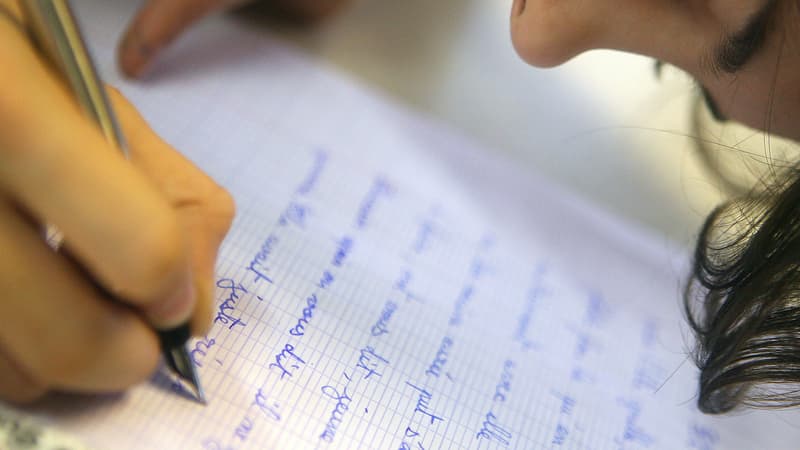The Minister of National Education, Pap Ndiaye, called for strengthening the exercise of dictation in primary schools, recommending doing it daily, according to a confidential note from the Ministry of National Education that BFMTV was able to consult. This is for CM1 and CM2 students to better master the rules of grammar and spelling before entering the university.
This ministry announcement comes after the publication in December of a study indicating a drop in the level of spelling in France since 1987.
In fact, as soon as the drop in the level of French among students is mentioned, “all the ministers evoke the dictation, it’s not new,” Dominique Bruneau, school principal and federal secretary of the Sgen union, told BFMTV.com. -CFDT, “as if it were enough to tell teachers to take dictations” to solve the problem.
The dictate “to reassure” public opinion
“Jean-Michel Blanquer did it, Najat Vallaud-Belkacem too, Luc Châtel in his time”, he lists.
“Daily dictation must become a reality in primary school,” Jean-Michel Blanquer’s Ministry of Education wrote in 2017. The Minister of Education Najat Vallaud-Belkacem had made the same request in 2015. In 2012, it was Luc Châtel who, noting “unsatisfactory” results in spelling, called “use dictates.”
Also in 2004, the Minister of Education at the time, François Fillon, advocated the strengthening of dictation and recitation.
“I think it’s something that should reassure everyone, everyone knows this exercise,” argues Guislaine David, co-general secretary of the SNUipp-FSU primary school union.
Claude Lelièvre, historian of Education, explains to BFMTV.com that “spelling and dictation have a very special place in France, which we don’t see in most other countries.” In that sense, “it is a national totem” and mentioning it is “to reassure part of the opinion.”
The historian notes in passing that Jules Ferry, father of the public, secular and compulsory school, was against this obsession with spelling. “He preferred to write by dictation, even if he did it with errors,” he says.
It’s not “a magic bullet”
If the successive Ministers of Education call for strengthening dictation in primary education, this exercise has been practiced daily by teachers for a long time”, Pierre Favre, vice president of the SNE union (National Union of Schools) assures BFMTV.com. “Most of the teachers already do dictations on a daily basis”, Dominique Bruneau also launches.
The teachers interviewed explain that they practice various forms of dictation: texts, sentences, words… “There is also self-dictation”, says Pierre Favre. This is an exercise that consists of transcribing a text memorized in writing, “this can be useful for students who have visual memory.”
The dictation exercise “is used to make the child progress by periodically returning to the things seen, the spelling rules, the conjugation… We look to see if he acquires it”, explains Dominique Bruneau.
But if this exercise seems to be the archetype of the French exercise that would demonstrate the good level of a student, “it is not a miracle solution”, declares Guislaine David. “It’s not because we do 10 dictations a day that we necessarily improve” in spelling and grammar, he explains, and “it’s not the only exercise to learn spelling.”
“It’s a traditional exercise,” explains Pierre Favre, but “through lessons, exercises with spaces, for example, we can also train the student to express himself.”
The note from the Ministry of Education also highlights that regular writing practice should be reinforced, in addition to dictation, because it allows students to improve their expression.
“We need more remediation”
In order to improve the level of students in French, beyond doing more dictation, we must manage to bring those who have more difficulty up to the level of Dominique Bruneau, and for that “we need more remediation”, or implement pedagogical devices to compensate for a student’s tardiness.
Guislaine David also points out how difficult it is sometimes to help a child in difficulty in classes with many students. “You can’t have all the students read a text aloud in one day,” she explains.
“And if we increase the number of hours in French, in what other subject are we cutting back?” asks Dominique Bruneau.
According to data from the Ministry of Education, upon entering 6th grade, 27% of students do not have the expected level in French and almost a third in mathematics. Given this observation, in addition to reinforcements in CM1 and CM2, Pap Ndiaye announced the creation of one hour per week of reinforcement or deepening in French or mathematics in 6th grade.
Source: BFM TV


